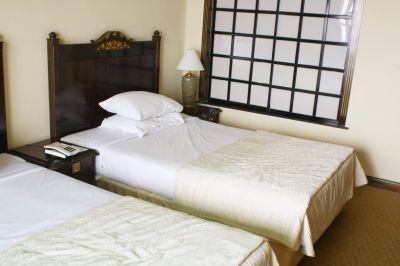How to avoid bed bug bites

They're unglamorous, but for regular travelers they're unfortunately sometimes part of the package - bed bugs have been in the media a lot recently, so what can travelers do to avoid them?
Capable of giving nasty bites akin to those of a mosquito (but often in a tell-tale line rather than randomly on the body like a mosquito), bed bugs have been the cause of several law suits from disgruntled guests this year, particularly against hotels in New York.
The best way to avoid a nasty confrontation is to avoid hotels reported to be infested at all, by using a website such as Bed Bug Registry, which lists reported cases, or all-round guide bedbugger.com.
On arrival, travelers should check out their rooms for signs of the nocturnal animals, says this guide from Bug Girl's Blog, keeping an eye out for the brown spots left by bed bugs' waste and places that they might hide during the stay, such as the headboard, wall, and mattress seams.
It's also worth checking couches, drawers and furniture near the bed, as bed bugs don't like to live far from their food source - sleeping humans.
To ensure you haven't picked up bed bugs from a contaminated place, keep suspect items in a plastic bag and wash them on the hottest temperature possible for the fabric, says the University of Minnesota's Dr Stephen A Kells in this paper.
For items that can't be washed, have them professionally dry-cleaned or hand wash them, scrubbing the seams and folds and ensuring the temperature is above 45ºC.
Finally, if you get bitten, don't scratch it, but wash with warm soapy water and apply an anti-itch cream, says Dr Dini M. Miller on MSNBC.
Join our commenting forum
Join thought-provoking conversations, follow other Independent readers and see their replies
Comments
Bookmark popover
Removed from bookmarks